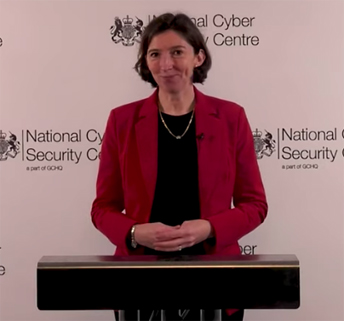Scams related to the National Health Service, online delivery companies, cryptocurrency investments are among some 10.5 million suspicious emails sent by the public to the UK’s official cyber agency, resulting in the take down of 76,000 online scams, reports the National Cyber Security Centre (NCSC), which is a part of GCHQ.
As the NCSC says, opportunistic criminals have taken advantage of more people using digital devices than ever, with scams that can lead to accounts being hacked. Last year saw a 161pc increase in unauthorised access to personal information offences – including hacking. Hence a UK Government campaign; broadcast, online and almost 2,000 billboard adverts to publicise actionable advice on defending digital assets.
The adverts recommend that people and small businesses use passwords made up of three random words and enable two-step verification (2SV). This will help keep out anyone who should not have access to an account, by requiring a second step after the password is entered, such as a code texted to the account holder’s phone. In line with that advice, email providers are now encouraging their customers to use 2SV. Several online services such as those provided by HMRC also now ask their users to follow the Cyber Aware password advice.
NCSC Chief Executive Lindy Cameron, pictured, said: “The British public’s response to our Suspicious Email Reporting Service [launched in April 2020] has been incredible and led to the removal of thousands of online scams. But there is even more we can do and by following our Cyber Aware steps to secure online accounts – starting with email – people will dramatically reduce risks including financial losses and personal data breaches.
“We all have a role to play in our collective cyber security and I urge everyone to follow our Cyber Aware advice to make life even harder for the scammers.”
The NCSC says that using three random words allows people to set passwords that are unique, strong enough and easier to remember. Enabling two-step verification significantly decreases the likelihood of an account being hacked. Stealing a password can be simple – stealing a password and a device used to authenticate a login is much harder.
Comment
Dan DeMichele, VP, Product Management for the cyber product firm LastPass, said: “The continued rise in cybercrime is a wake-up call for all – from large enterprises through to individuals. It pays to be savvy about cybercrime and despite a fast-evolving landscape it’s heartening to see more of us stirred into action and taking ownership of our cyber health. The pandemic-led rise has heightened our awareness – but the message remains the same: everyone needs to be prepared.
“The best line of defence to ensure we remain safe from cybercriminals is to use caution across all channels, review email addresses and trust gut instincts.
“Cyber attackers love it when their intended victims are uninformed and unaware about cybersecurity – it makes their task easier, after all. It’s therefore imperative you keep up to date on security best practices. While no one can ever be 100% protected, if you take the appropriate steps to keep yourself safe you can rest easy knowing you’ve done your part to be safer online.”
You can report suspicious emails by forwarding them to [email protected].










